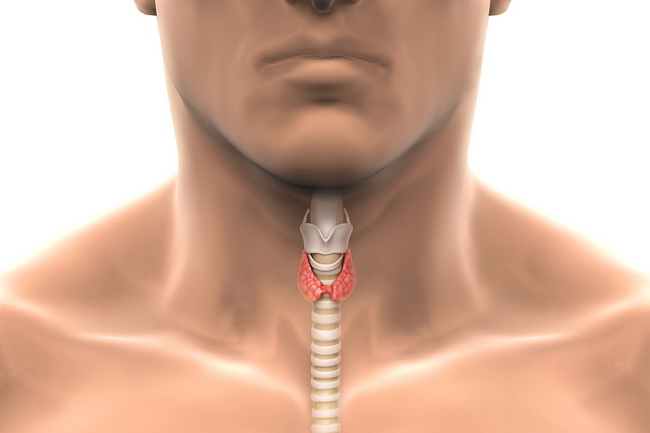- Make It Yourself Lavender Heart-Shaped Bath Bombs!
- 20 Things You Never Knew About “Down There”
- 12 Best Foods For Those Suffering From Arthritis Pain
- 12 Personal Hygiene Mistakes Almost Everyone Makes (Mom Never Told You About #4!)
- 15 Medicinal Plants And Herbs From The Cherokee People
- 12 Mind-Blowing Benefits Of Drinking Coconut Water During Pregnancy
- 12 Outstanding Winter Foods That Won’t Fatten You Up Like A Christmas Turkey
Can Your Diet Affect Your Thyroid Health?

Photo credit: bigstock.com
Many people know someone with a condition called “hypothyroidism,” which contributes to weight gain, and loss of energy among many other symptoms. But how many people could, when asked, explain what their thyroid is? Not many, and that should be cause for concern. The thyroid, as you’ll learn in this article, is one of the most important glands in the body, and your diet can play a significant role in whether or not it remains healthy, and not for the reasons you may have heard. Keep reading!
The thyroid is a large gland located at the base of the neck, right under the “Adam’s apple.” The purpose of the thyroid gland is to regulate vital functions of the body, including metabolism, body temperature, breathing, heart rates, cholesterol levels, the central and peripheral nervous systems, and much more. Needless to say, it is arguably the single most important gland in the body. The thyroid gland is a key part of the endocrine system, which produces and releases hormones to different parts of the body. One very important part of grasping how the thyroid gland works is understanding its relationship to the element iodine. The human body cannot synthesize iodine — it can only be obtained through food. The thyroid gland combines iodine from your diet with an amino acid called tyrosine, converting it into hormones, the most important of which are triiodothyronine (T3) and thyroxine (T4). T3 and T4 are then transported to every cell in the body to help produce energy. Because every cell in the body uses thyroid hormones, if something goes wrong the thyroid itself or the hormones it produces, it can produce a wide variety of symptoms.
Thyroid Disorders
The two most common illness related to the thyroid are hyperthyroidism and hypothyroidism. A layman who is simply observing symptoms can sometimes find it confusing to tell what is going on without a doctor’s opinion, since the symptoms for these two opposite conditions can overlap. Hyperthyroidism, also called Grave’s Disease, is caused when the levels of the previously mentioned T3 and T4 hormones get too high. Symptoms of hyperthyroidism include:
- Nervousness and restlessness
- Weight loss
- Sweating and unusual sensitivity to heat
- Irritability
- Anxiety
- Irregular heartbeat
- “Brain fog” (difficulty with concentration or clear thinking)
- Hand trembling
Conversely, hypothyroidism occurs when the body’s levels of T3 and T4 get too low. Symptoms for this condition include the following:
- Increased sensitivity to cold
- Psoriasis
- Pain in muscles and joints
- Insomnia
- “Brain Fog”
- Fatigue
- Weight gain
- Hypoglycemia
- Feelings of depression
Continue to Page 2
































